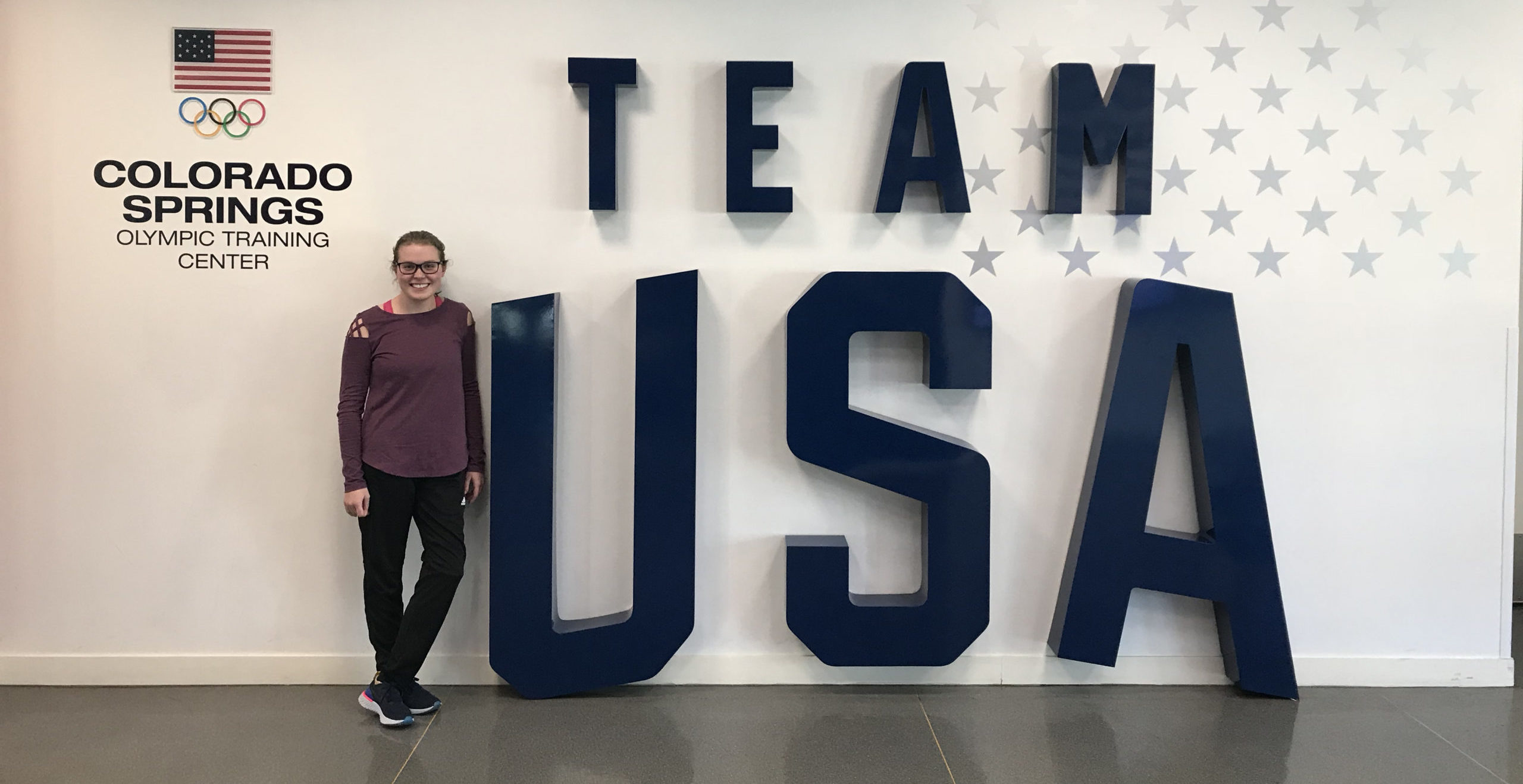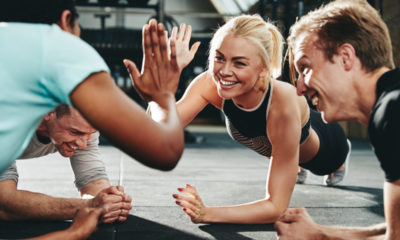Transform
Morgan Stickney: No Limits
Despite a double leg amputation, Morgan Stickney’s grit and incredible resolve have taken her physical and mental game to the world’s biggest stage
Inexplicable Circumstances
When I was 15, I was one of the country’s top 20 swimmers across the one-mile distance. One day while I was walking to swim practice, my foot started to hurt with no explanation. The doctors told me I had inflammation of the bone, so I waited for 6-8 months and was told the bone was dead and had to be removed. I had surgery to remove it, but that had a bad infection and eventually I had to remove my left leg below the knee. After that, I got back in the pool and qualified for the national team and ended up winning in the 100m and 400m freestyle events. Then in January 2019 I was recovering in a cold tub and I when I got out, I felt the same pain that I’d had in my left leg. Immediately I was overcome with a gut feeling that I was going to lose the leg. Everyone told me I was overreacting, but after an angiogram I was told my blood flow stopped mid-calf. It was something none of the specialists had ever seen before and couldn’t explain. My foot was slowly dying and eventually my right leg had to be amputated too.
Adapting To Change
I feel like certain people are born athletes and inside me is this intense desire to get to the top, no matter what I’m doing. I remember that after I lost my first leg I desperately wanted to get in the pool because it’s a feeling that is so freeing, were I don’t feel any different to other people. When I lost my second leg, I didn’t think I’d swim again. This was not because I didn’t want to swim, it was because I was worried, I’d lose more of my leg. After I’d spoken with doctors to make sure I wouldn’t suffer further injury, I got the all clear which was great because my passion and drive was always there. At this point I’m training to part of the team for the Tokyo Olympics in 2021.
Training For Success
Thanks to Covid I’ve not been able to travel to training facilities, but I have been working with the trainers remotely and they’ve given me excellent exercise variations to do. Squats, pushups and planks are always challenging, but I’ve developed ways to complete them. For moves like pushups and planks I take my prosthetic legs off and rest on foam roller so I can complete the moves. For squats, I have a box behind me and sit on the box then stand right up. These are two examples that the trainers at the Adaptative Training Facility (ATF) have taught me to do properly. Oddly enough, the Covid situation has been a benefit for me because I was so far behind everyone and it gave me a few months at home to train 2-3 times a day. I use a Vasa Swim Machine that I can lay on it, so I do that twice a day and team it up with working out on dry land. This has allowed me to gain a lot of strength and I’m very close to achieving a lot of American records.
Nutrition Support
I’m sponsored by P2Life so take their products along with amino acids from Amino Vital. I take those products every day, before and after every workout and feel that gives me enough energy to train intensely. Mostly I make sure I eat a lot of protein, making sure I get at least 20 grams of protein in every meal.
Recovery Steps
Since I train a lot, I make sure I take plenty of naps and always have a good night sleep. On top of this, I use my Hypervolt percussion therapy tool for 10 minutes on my arms and lats several times each day. I also do it on my back and use the strongest setting at night and use the lightest setting just before practice to warm up my muscles. While working with the team at ATF, I was introduced to using a meditation app that focuses on breathing. This has been tremendous from a recovery standpoint because it aids with relaxation and helps me get genuine deep sleep. I also use a Whoop band which tracks all of your sleep cycles with a lot of accuracy, which has been very useful.
Advice to Others
The most important thing I’ve learned is to never to give up on yourself and your ambitions. There is always a light at the end of the tunnel and while I thought my life as I knew it had changed, there is always something to work towards. Much of this mental strength lies in remaining positive, especially during difficult times because having the right attitude is everything. To help with this, it’s good to build a strong team around yourself. My parents were amazing through everything, as has my surgeon Matthew Carty. Most recently my coach John Pain took the challenge of getting me to the Olympics even though he’d never worked with adaptive athletes before, but he really thinks outside the box. Finally, there were a lot of people who constantly told me I couldn’t do things and I had to slowly cut anyone toxic out of my life. You should never let anyone tell you what you can and can’t do because what you believe should be the only limit that you set for yourself.
This article originally featured in TRAIN for HER issue 88. Get a free subscription by clicking here.














